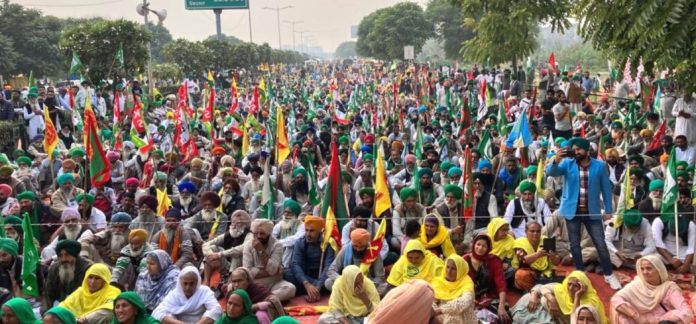DM Monitoring
New Delhi: While farmers at the state’s borders have alleged brutality on the part of its police against them, the Haryana government today (February 23) announced the waiver of interest and penalty on certain crop loans in its budget for 2024-25 financial year.
The Hindu has reported that Haryana CM Manohar Lal Khattar has said that his government has taken many steps for the welfare of farmers and that Minimum Support Price (MSP) is being given for 14 crops.
Among demands by farmers who are looking to march to Delhi is a law guaranteeing MSP for the 21 crops that the government purchases. The protest at the Khanauri and Shambhu points of the heavily guarded and barricaded Punjab-Haryana border have been suspended for two days over the death, allegedly by Haryana police’s firing of a rubber bullet, of a young protester. Over 150 farmers have been injured in Haryana police action at the border, a government hospital civil surgeon has told The Wire.
In the Rs 1.89 lakh crore budget, the Khattar government has included the waiving off of interests and penalty on crop loans taken by farmers from Primary Agriculture Credit Societies (PACS) till September 30, 2023. Two other caveats are that the principal amount be paid by May 31, 2024, and the farmer be registered with the Meri Fasal Mera Byora portal.
Meanwhile, Ambala Police in Haryana said they are taking action under the stringent National Security Act (NSA) against protesting farmers’ leaders only to revoke this statement a day later.
Accused by Leader of Opposition Bhupinder Singh Hooda of being anti-farmer with the NSA move, Khattar said farmers are dear to them. “I am the son of a farmer, I know the pain of farmers. When I have announced a scheme in favour of farmers, either you are not able to digest it or not liking it,” he said, according to the Hindu report.
The farmers’ protest ahead of the Lok Sabha election has led to significant worry for the Narendra Modi government at the Union as well, which decided to hike the Fair and Remunerative Price (FRP) for sugarcane crop by 8%, in a move that is analysed to be of not much help to farmers.
Earlier, As farmers once again protest in India – three years on from the biggest peaceful civil society protest in the world – it is worth remembering that agriculture was also a critical issue for the nation in its first decades. The country’s first prime minister, Jawaharlal Nehru, bluntly stated that “everything can wait, but not agriculture”. This line of thinking eventually led to the Green Revolution of the late 1960s, forging India’s food security and providing much-needed revenue for some of its farmers. But back in the present, a looming water crisis has returned Indian agriculture to the spotlight.
The Green Revolution harnessed high-yield grain varieties, water-intensive practices (largely reliant on pumped groundwater) and heavy fertiliser use.



